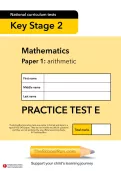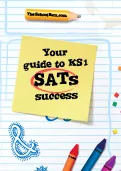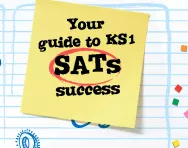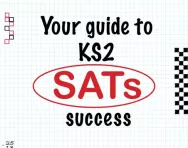Important update from TheSchoolRun
For the past 13 years, TheSchoolRun has been run by a small team of mums working from home, dedicated to providing quality educational resources to primary school parents. Unfortunately, rising supplier costs and falling revenue have made it impossible for us to continue operating, and we’ve had to make the difficult decision to close. The good news: We’ve arranged for another educational provider to take over many of our resources. These will be hosted on a new portal, where the content will be updated and expanded to support your child’s learning.
What this means for subscribers:
- Your subscription is still active, and for now, you can keep using the website as normal — just log in with your usual details to access all our articles and resources*.
- In a few months, all resources will move to the new portal. You’ll continue to have access there until your subscription ends. We’ll send you full details nearer the time.
- As a thank you for your support, we’ll also be sending you 16 primary school eBooks (worth £108.84) to download and keep.
A few changes to be aware of:
- The Learning Journey weekly email has ended, but your child’s plan will still be updated on your dashboard each Monday. Just log in to see the recommended worksheets.
- The 11+ weekly emails have now ended. We sent you all the remaining emails in the series at the end of March — please check your inbox (and spam folder) if you haven’t seen them. You can also follow the full programme here: 11+ Learning Journey.
If you have any questions, please contact us at [email protected]. Thank you for being part of our journey it’s been a privilege to support your family’s learning.
*If you need to reset your password, it will still work as usual. Please check your spam folder if the reset email doesn’t appear in your inbox.
SATs advice: speaking and listening

Speaking and listening activities encourage children to become better readers and writers. Talking about books can deepen a child's understanding of a text and various verbal activities will encourage children to widen their vocabulary and organise their thoughts which in turn feeds into their writing. Though speaking and listening are not formally tested in SATs, help your child reach their full literacy potential by encouraging these activities at home:
Practical speaking and listening ideas for KS1
At this stage in your child's life, cultivating good listening skills is very important. As younger children find it difficult to concentrate for sustained amounts of time, your speech needs to be succinct, informative and fun.


Prepare your child for SATs today
- Your guide to SATs
- KS1 & KS2 SATs revision courses
- SATs practice papers in English & maths
When reading a story with your child, it is really important that this is not just an exercise where one of you reads aloud to the other. The SATs reading tests, which are optional in Y2 and mandatory in Y6, involve reading both fiction and non-fiction texts carefully and then answering various questions on them.
You can help prepare them for this by making sure that you allow plenty of time for discussing the texts they read and producing ideas verbally. These activities will also help them to use better vocabulary and sentence structure when writing.
Retell a story
Try reading your child a story which is perhaps more challenging than one they would be able to read to you. Ask them to listen to the details of the story carefully. Once you have finished, ask them to retell the story to you, in their own words.
Retrieve information
This is basically 'pulling' information out of the text. For example: you might ask a child to tell you what three naughty things Goldilocks did (eating the bears' porridge, sitting in their chairs and sleeping in their beds). KS1 SATs include questions that involve retrieval of information, so this is an important skill to learn.
Practise inference
This is sometimes referred to as: 'reading between the lines' and usually involves trying to work out how a character is feeling by the way they are acting. For example: you may say to them: 'Goldilocks ran very fast from the bears' house. Why do you think she did this?' Hopefully your child will have been able to infer from the text that Goldilocks was terrified of the bears! You could extend this by saying: 'Why was she terrified of them?' Your child would then need to think about the fact that Goldilocks had behaved badly in the bears' house and angered them, so she might be afraid of the consequences.
Another good activity that involves plenty of inference practice is to ask your child to 'become' a character from the story and conduct an interview with them, asking questions which your child must answer as the character. This will really help consolidate their listening and speaking skills, as well as being a fun activity they will enjoy.
Expand vocabulary
Show your child a picture from the book they have read. Ask them to think of five good adjectives to say out loud to describe a character, object or setting in the picture.
Speaking and listening activities for KS2 SATs
Here are some ideas to help your child become a better reader and writer in preparation for the Key Stage 2 SATs.
Construct some connective chains
If you think your child needs help understanding and using connectives, a good game to play is one where you say half a sentence with a connective, such as 'I really wanted to get a dog, however...' and then encourage your child to finish the sentence verbally. Encourage them to finish the sentence in as many ways as possible.
Super-charge adjectives and adverbs
To help your child expand their vocabulary, find various pictures from books and magazines. Ask them to describe the picture using the best five adjectives they can think of. If there is any movement in the picture, could they use a powerful verb to describe it? Could they add an adverb to this? See if they can plan a story (in writing) centred on this picture, and then present the story verbally to you.
Discuss current events
Look at non-fiction texts and talk about the way they are laid out. For example: look at a newspaper article and ask your child if they can name any of the features of the text (headline, picture, caption, paragraph, quotations). Ask them to read through the newspaper article and then see if they can sum up verbally what it was about.
Start a debate
Debates are an excellent way of ensuring that children are not only finding their voice through sharing opinions and facts, but also find their ears too by patiently listening and respecting the views of others. Suggest a topic your child has expressed an opinion about and get them debating at home. It’s a great way of getting the whole family involved and will certainly improve your child's confidence in their communication skills. You never know, you might find you have a budding politician sitting at your dinner table!
It may be a good idea to start them off on a subject, for example: discussing whether technology is good for children, or whether the lottery is a good idea. Encourage them to say what they think and back up their opinion with plenty of examples. (This activity will help them if they have to write an argument text as part of the Year 6 English curriculum.)
Be persuasive
For another challenging exercise, ask your child to find an item in the house that they must try to sell to you. Encourage them to look at adverts, highlighting persuasive words and phrases that they can use. They then need to write a 'pitch' and attempt to memorise it! Get them to present their pitch to you and then ask them plenty of questions which they need to think up answers to, convincing you that their product is the best. If you have other children, you could ask them to be rival salespeople! This fun and lively activity could even help them practise their ICT skills if they wanted to do a presentation to support their pitch.








